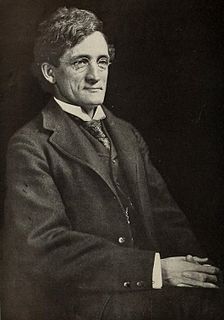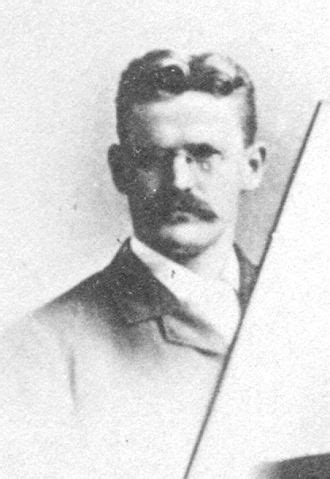A Quote by Arthur Compton
Yet is it possible in terms of the motion of atoms to explain how men can invent an electric motor, or design and build a great cathedral? If such achievements represent anything more than the requirements of physical law, it means that science must investigate the additional controlling factors, whatever they may be, in order that the world of nature may be adequately understood.
Related Quotes
Science appears to us with a very different aspect after we have found out that it is not in lecture rooms only, and by means of the electric light projected on a screen, that we may witness physical phenomena, but that we may find illustrations of the highest doctrines of science in games and gymnastics, in travelling by land and by water, in storms of the air and of the sea, and wherever there is matter in motion.
Science may explain the world, but we still have to explain science. The laws which enable the universe to come into being spontaneously seem themselves to be the product of exceedingly ingenious design. If physics is the product of design, the universe must have a purpose, and the evidence of modern physics suggests strongly to me that the purpose includes us
Understanding human nature must be the basis of any real improvement in human life. Science has done wonders in mastering the laws of the physical world, but our own nature is much less understood, as yet, than the nature of stars and electrons. When science learns to understand human nature, it will be able to bring a happiness into our lives which machines and the physical sciences have failed to create.
The result of [the] cumulative efforts to investigate the cell - to investigate life at the molecular level - is a loud, clear, piercing cry of 'design!' The result is so unambiguous and so significant that it must be ranked as one of the greatest achievements in the history of science. The discovery rivals those of Newton and Einstein, Lavoisier and Schrödinger, Pasteur, and Darwin. The observation of the intelligent design of life is as momentous as the observation that the earth goes around the sun.
If spiritual science is to do the same for spirit that natural science has done for nature, it must investigate quite differently from the latter. It must find ways and means of penetrating into the sphere of the spiritual, a domain which cannot be perceived with outer physical senses nor apprehended with the intellect which is bound to the brain.
It is clear that everybody interested in science must be interested in world 3 objects. A physical scientist, to start with, may be interested mainly in world 1 objects--say crystals and X-rays. But very soon he must realize how much depends on our interpretation of the facts, that is, on our theories, and so on world 3 objects. Similarly, a historian of science, or a philosopher interested in science must be largely a student of world 3 objects.
One can discern a few very general myths that facilitate the birth of further myths: that everything is possible; that whatever we have failed to explain in normal and earthly terms must have paranormal or supernatural explanations; and that science, being rational, cannot explain the irrational, such as taste and love.
Sir, Your letter of the 15th is received, but Age has long since obliged me to withhold my mind from Speculations of the difficulty of those of your letter, that their are means of artificial buoyancy by which man may be supported in the Air, the Balloon has proved, and that means of directing it may be discovered is against no law of Nature and is therefore possible as in the case of Birds, but to do this by mechanical means alone in a medium so rare and unassisting as air must have the aid of some principal not yet generally known.
We shall use the terms morality, behavior, conduct, or constructive action in the same broad way. It may sound strange to speak of the morals of an atom, or of the way in which a molecule conducts itself. But in the last analysis, science can draw no fundamental distinction between the conduct of an animal, a bullet, or a freshman, although there may be more unknown factors involved in one case than in the other.




































